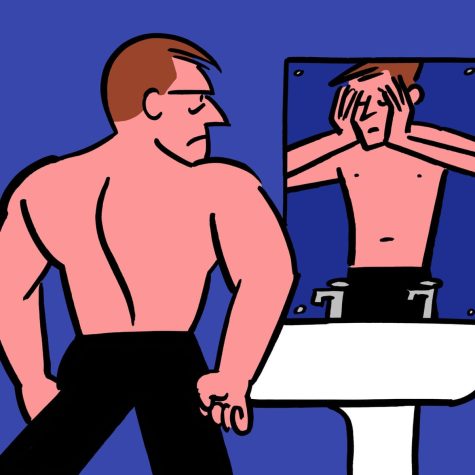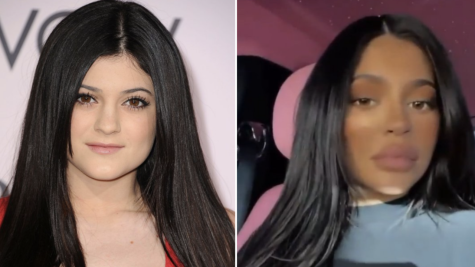What It Feels Like For A Girl
It’s a charming crisp late night in Lower Manhattan on a tame Saturday Afternoon. I’m walking down the street with with my dog Milo for his late night walk where I took the time to not only clean up his defecation but to de-stress from a week full of exams and family problems.
While crossing the street and bending over to tie Milo to a nearby pole to walk into the Rite-Aid a few steps ahead, I feel a hand press against my rear and hear a man whisper to me “you look incredible today.” At first I assume in my hurry to get in the store, that he had mistaken me with someone else, but after turning around to notice his smirk and thumbs up I realize that it was me he meant to catcall, not someone else.
For those of you who are either a clueless man or have been living under a rock; Hello… welcome to planet earth, where 77% women have experienced sexual harassment in her lifetime according to npr.org.
Inappropriate touching is one of the many experiences myself and many women can tell you about the level of sexual harassment we experience daily. We have been through it all, disgusting “men” stopping their cars to take a good look at us while asking for us to get in with them, “men” meowing at us from across the street (yes an actual meow); following us as we’re walking asking us “how we’re doing?” when we clearly don’t want anything to do with them, having “men” pulling our headphones out just to tell us that we have a big butt. They yell things at us they drive by, they honk, whistle, and go “yo!” while we as women try to ignore them and continue on what we are trying to do.
Due to this, us women constantly live off fear. When walking to class, I sometimes put my headphones on with with no music playing just so that I can hear what is going on around me for my safety.
Now during the current COVID-19 pandemic, lock down restrictions and required mask wearing laws, the levels catcalling would have decreased since many are either not on the street or restricted to come within six feet of someone in fear of chastising. But that’s far from the case. Instead, the pandemic has emphasized that catcalling is beyond finding someone attractive based on their beauty or how revealing their clothes are…
It’s about power.
The continual advantage than men still have over women in almost every aspect of life. According to a report by TUC and Everyday Sexism, of 52% have experienced sexual harassment in the workforce. Another study conducted by Slater and Gordon found that 60% of women have experienced behavior and that nearly half of those studied had been warned by members of their job about that behavior from a specific person before they arrived on the job.
It’s almost like there is a competition between some “men” on who can be exhibit the boldest, strongest most macho, image to the public; Even if it denigrates the view of a fellow human being. I strongly believe that most of these men are not driven by their own sexual nature, but by a unfortunate lack of self esteem and an increased level of disappointment and frustration with their lives so they in turn, they need to divert their focus to bringing others down to their level.
Us women have heard it one too many times…
“let it go,” or “he was just complementing you.”
Phrases used to cover up the sexists behavior from immature and barbaric “men” who view women as nothing more than objects that feed into their sexual fantasies. It’s an incredible juxtaposition that many societies and families encourage women remain wholesome and polite for the public, yet these same people are catcalling women on the street because they are wearing shorts in 90 degree weather or telling those in layers of clothes to undress a little.
To some people, catcalling is a positive thing that makes women feel wanted – but this viewpoint only reinforces the “rape myths” notions deeply ingrained in many people’s minds that has been passed down for generations. They blame the victim for being there and acquit the perpetrator for not knowing better.
Writer Mary Morgan in her piece, “Even during the pandemic, catcalling goes on. I refuse to be treated as an object” states “To ask, for example, what someone was wearing at the time of the incident is as common in cases of rape as in street harassment. It is a response that immediately looks for ways a woman was deserving of her assault. It should not matter what someone is wearing; it’s her body, she can wear whatever she wants. It really is as simple as that.”
Compliments don’t provoke fear. They don’t panic people when they walk out of their house. Complements doesn’t make people feel vulnerable or makes them terrified to leave their home.
Catcalls does that.

Britney Guzman is a Senior at Mercy College. She writes a column called Quali-Tea News where she discusses her love for cats, Taylor Swift and mental...








